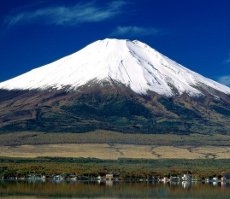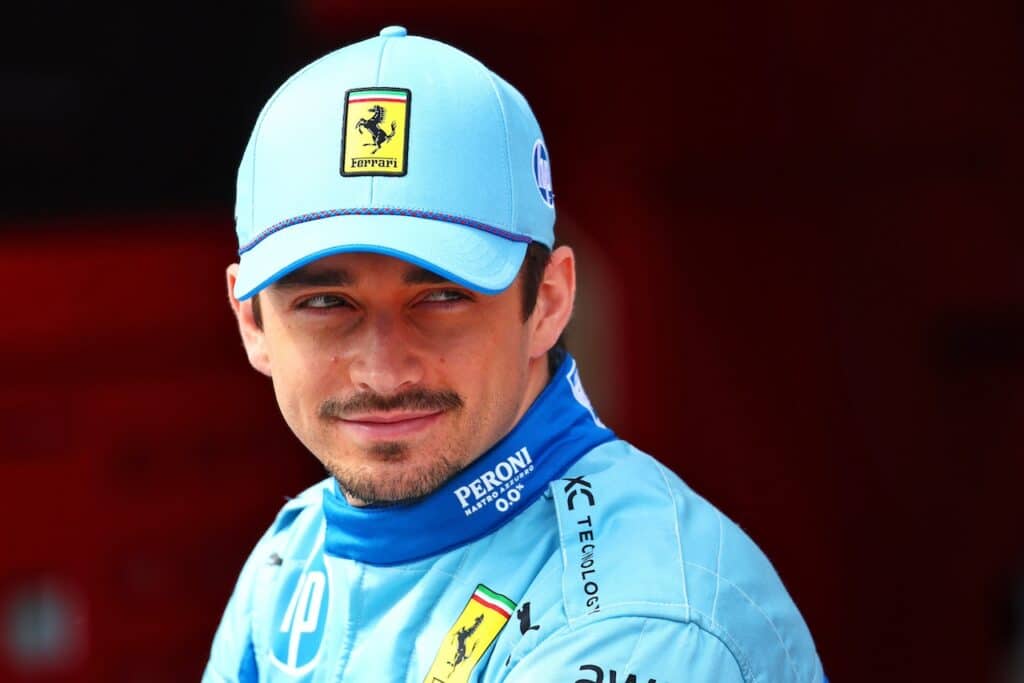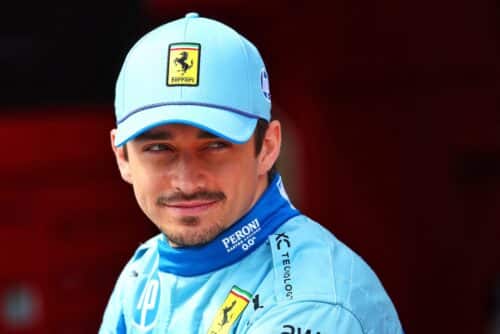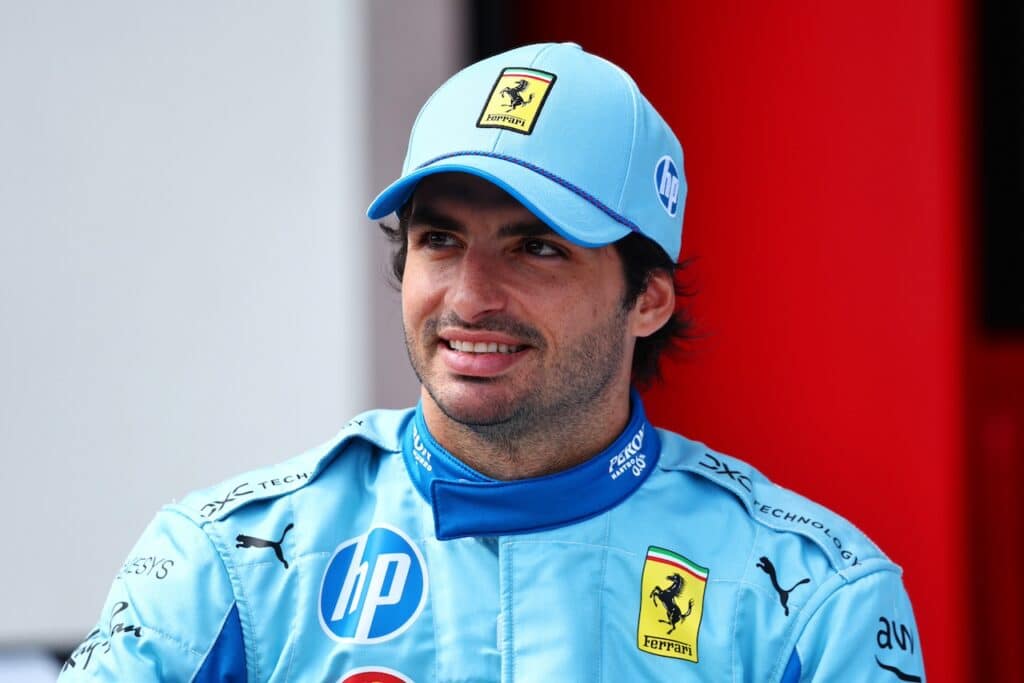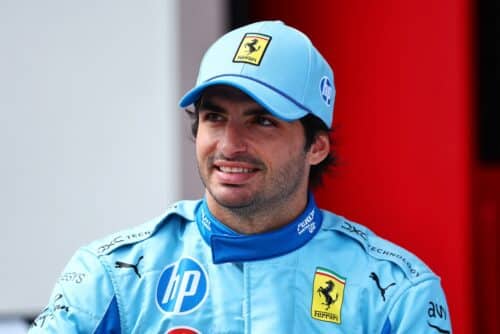October 24, 1976, the Fuji deluge crowns James Hunt
Exactly 40 years ago the Briton became world champion

For Formula One fans of the 70s, today's date absolutely cannot be overshadowed. Exactly 40 years (24 October 1976), with the third place achieved in the Fuji storm and the simultaneous retirement of Niki Lauda, James Hunt fulfilled his dream of becoming world champion.
A season full of emotions, twists, accidents, disqualifications inflicted and then revoked. A real film set script written by destiny, with the plot of that year converted into a film in 2013 by director Ron Howard in the film Rush. Naturally, the 1976 vintage is and will be remembered for the head-to-head battle between Lauda and Hunt, Ferrari and McLaren. A rivalry, the one between the Austrian and the Englishman, centered on healthy and mutual respect.
Lauda and Hunt, one the antithesis of the other. Two completely different personalities. The Austrian is very introverted, methodical, precise. In short, he is all about home and work. The second instead is "allergic" to a normal life, a true concentration of women, smoking, alcohol and motors. But it would be intellectually dishonest not to recognize Hunt's class: he doesn't become world champion by chance.
At the starting line of the season, Ferrari and Lauda, with the number 1 printed on their car, started as the underdogs. And in fact the results achieved by the Austrian in the first nine races (five wins, two second places and one third place) confirmed these predictions.
But the season took a different turn on a mid-summer day (1 August), concise with the German Grand Prix. The races took place on the old Nürburgring circuit (Nordschleife) which was 22 kilometers and 800 meters long. The track, immersed in the Eifel forest, was a combination of ups and downs, straights, banked and in many cases blind curves. An "old-fashioned" track which, due to its complexity and difficulty, tended to bring out the pure class of the most talented riders.
During the third lap a roar shocked the race. Lauda's 312 T2 number 1 skidded near Bergwerk (a curve located opposite the pits), hitting the protective nets. An impact that ripped open the fuel tank with the Ferrari driver's helmet flying off after hitting a pole that delimited the fences.
The car, returning to the center of the track, began to catch fire and was also hit squarely by Brett Lunger's Surtees and Harald Ertl's Hesketh. Thanks to the courage and temerity of Arturo Merzario, Lauda - who had passed out in the meantime - was extracted from the cockpit of his single-seater. The rescue efforts, also due to the length of the circuit, were not immediate. What caused the greatest concern about Lauda's state of health were not the burns, albeit serious, but the fumes ingested by the reigning world champion in those interminable seconds.
In the aftermath of that dramatic August 1st, the question that many asked themselves, also given the long convalescence that the Austrian would undergo, was the following: will Lauda return to being that great driver admired before the Nürburgring appointment?
A question to which Enzo Ferrari answered in his style, letting the facts speak for themselves. The Drake in fact he decided to hire the Argentine Carlos Reutemann alongside Clay Regazzoni. But no one had taken into account the determination of Niki who, after having been one step away from hell, caught everyone off guard by showing up in Monza (with the injuries sustained at the Nurburgring still fresh on his face) to take part in the Grand Prix weekend of Italy: not even 40 days had passed since the Nürburgring accident.
In the meantime Hunt, thanks to Lauda's forced convalescence period, reduced the gap in the standings to just 14 points (47 against 61). The return to the wheel was not easy for the Austrian from Ferrari (“At the first spin I got scared”, he said), however obtaining an excellent fourth place in the race.
The Briton, however, had to retire due to an off-track exit. At the end of that very tight season, only three races remained: Canada, Eastern United States and Japan. At Mosport Hunt achieved his fifth victory of the season while Lauda did not go beyond eighth place due to the failure of the rear suspension.
At Watkins Glen, however, the Ferrari driver found the joy of the podium again, the first after the accident, finishing the race in third place even if Hunt increased his number of seasonal successes to six. In the general classification the number 11 McLaren was now hot on the heels of Lauda's 312 T2, leader with just three points ahead of its rival.
The last act of the season saw Lauda and Hunt face off in the Japanese "ring" of Fuji, with the Asian continent finding itself hosting an event valid for the Formula One championship for the first time. In such an incandescent season, a noteworthy ending could not be missing. A violent downpour hit the area near the track at the foot of the sacred mountain, forcing the race management to postpone the start several times.
At 15pm local time (an hour and a half after the scheduled time) the OK was given to run. A few kilometers after the start, during the second lap, the twist that marked the world championship destiny of that championship: Lauda decided to end his race due to the prohibitive weather conditions. The rationality of the man Lauda had prevailed over the "madness" and pure instinct of the driver.
"There are no psychological hesitations or conditioning. I judged it absurd to continue racing on the track, even though the title was up for grabs”, declared the Austrian. Hunt, who came third behind Patrick Depailler and the winner Mario Andretti, won the world champion title by just one point ahead of the Austrian (69-68).
Remaining faithful to his lifestyle, the world championship triumph obtained at Fuji represented for Hunt the point of arrival and not the starting point towards new goals ("Life is short and I want to make the most of it”, the British tightrope walker loved to recall). And so halfway through the 1979 season, at just 31 years old, James decided to hang up his helmet. Unlike Lauda who, after a difficult season, returned to being a protagonist in the premier class of motorsport, winning the 1977 title as an absolute protagonist.
Piero Ladisa
if you want to always be updated on our news
Follow us here
